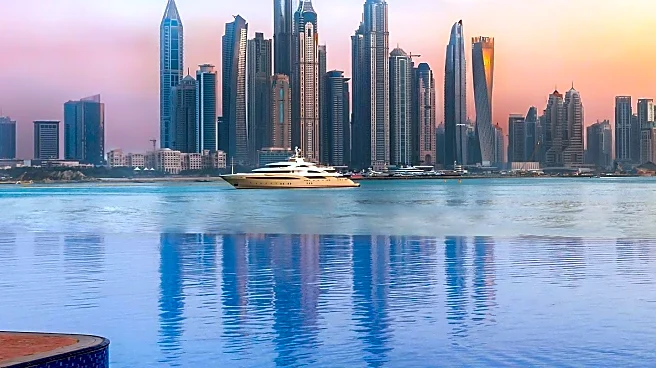What is the story about?
What's Happening?
Dubai is often perceived as a symbol of hypercapitalism and luxury, characterized by its downtown area with lavish hotels and the Burj Khalifa. However, the city's identity is more complex, encompassing its historical role as a transit hub and its diverse population, including migrant workers. Dubai has been a destination for expatriates, making up 85% of its population, and has a rich cultural tapestry with various diasporas asserting their presence. The city is also recognized for its growing reputation in astro-tourism, highlighted by its clear night skies and minimal light pollution.
Why It's Important?
Dubai's multifaceted identity challenges the simplistic view of it as merely a hub of excess and opulence. The city's diverse population and cultural dynamics offer insights into global migration patterns and the socio-economic interactions within a cosmopolitan environment. Dubai's role as a transit hub and its appeal to expatriates reflect broader trends in global mobility and economic opportunity. Additionally, its recognition in astro-tourism underscores the city's potential in attracting niche tourism markets, contributing to its economic diversification.
What's Next?
Dubai's evolving identity may lead to increased interest in its cultural and social dynamics, potentially influencing tourism and expatriate policies. As the city continues to attract a diverse population, there may be further developments in cultural integration and community building. The growing interest in astro-tourism could also spur investments in related infrastructure and services, enhancing Dubai's appeal as a unique travel destination.
Beyond the Headlines
The deeper implications of Dubai's identity include ethical considerations regarding migrant labor and the socio-economic stratification within the city. The narratives of migrant workers and their families are increasingly being explored in literature and media, offering a more nuanced understanding of their experiences. This shift in storytelling may influence perceptions and policies related to labor rights and social equity in the region.
















